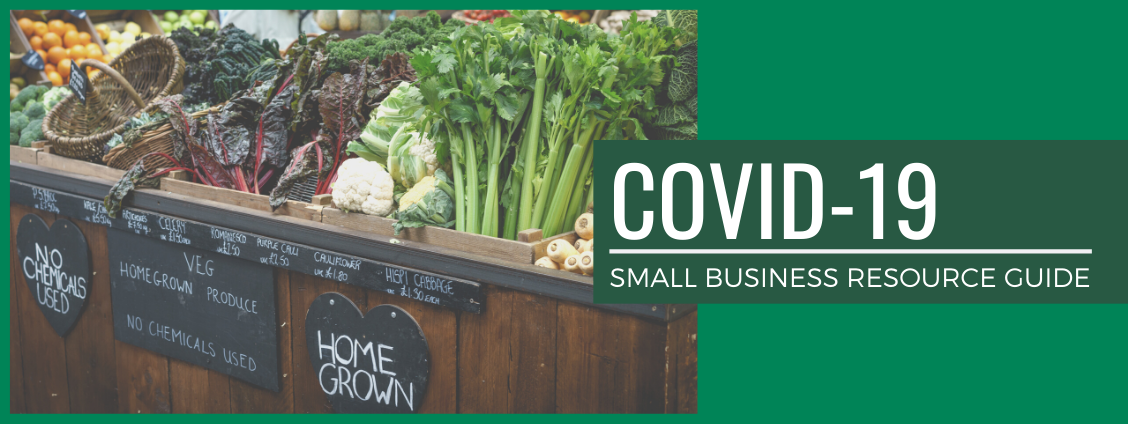
Piedmont Electric is here for you.
Piedmont Electric understands this could be a time of hardship or financial difficulty for our small business community which is why the co-op has suspended disconnections for nonpayment. No disconnects for nonpayment or associated fees have been charged to members since March 10, 2020 and all those members disconnected prior to this date have been reconnected. Even though disconnections for nonpayment have stopped for the time being, the cooperative will continue to read meters and send bills. Here is a list of important local, state and federal resources to help prepare and respond to current events.
Local Resources
Chamber of Commerce – If you are a member of a local chamber of commerce, use them as a guide to navigate your options during this time.
- Caswell Chamber of Commerce
- Chapel-Hill Carrboro Chamber of Commerce
- Durham County Chamber of Commerce
- Hillsborough Chamber of Commerce
- Mebane Business Alliance
- Small Business Relief Fund – $500 for qualifying businesses
- Roxboro Area Chamber of Commerce
Town of Carrboro Small Business & Non-Profit Emergency Loan/Grant Fund – Purpose of the fund is to assist Carrboro based businesses and non-profits that serve Carrboro with short-term payroll during the COVID-19 emergency.
Orange County Emergency Small Business Funding Program – Eligible small businesses may apply and qualify for either a grant, loan or both. Maximum grant of $5,000 per small business with no repayment required. Maximum loan of $20,000 per small business. Eligibility and details here (pages 4-5).
Person County COVID PIVOT Impact Loan – Loans are available in amounts of $2,500 -$10,000. To qualify as a small business under the program guidelines, a business must have 1-49 employees and be principally based in Person County, NC.
State Resources
NC COVID-19 Rapid Recovery Loan – Golden Leaf and the NC Rural Center have just introduced a new loan program which is a rapid recovery loan that is designed to provide businesses with the capital they need before federal loans and insurance payouts are approved. Start the online application process here.
The Economic Development Partnership of North Carolina (EDPNC) – Check out their COVID-19 Business Relief Resources Guide for a great summation of how your business can prepare during this crisis, including info about small business loans, grants and tax payment extension.
North Carolina Department of Health and Human Services (NCDHHS) – COVID-19 Recommendations for Businesses and Employers
National Resources
U.S. Chamber of Commerce Foundation – Save Small Business Fund – This grant program provides assistance to small businesses owners impacted by the coronavirus pandemic. Funded by contributions from corporate and philanthropic partners, the Foundation will distribute $5,000 grants to small employers in economically vulnerable communities in the United States and its territories. To qualify, applicants must employ between three and 20 people, be located in an economically vulnerable community, and have been harmed financially by the COVID-19 pandemic. Grants will be awarded weekly on a rapid and rolling basis until all funds have been disbursed.
United States Small Business Administration (SBA) Economic Injury Disaster Loans – The program is designed to help overcome the temporary loss of revenue through low-interest loans with favorable terms of up to $2 million at 3.75 percent interest for small businesses and 2.75 percent for non-profits, repaid over 30 years. In addition, here are four other federal loan and grant programs available right now to help business during this crisis:
- “EIDL Grant” (formerly called “ EIDL Cash Advance”)
- “Express Bridge Loan”
- “Paycheck Protection Program” (PPP)
- 7(a) Loan Payment Relief
The NC Small Business and Technology Development Center (SBTDC) created this smart summary and side-by-side comparison of the different funding streams.
Centers for Disease Control and Prevention (CDC) – Interim Guidance for Businesses and Employers
USDA Implements Immediate Measures to Help Rural Residents, Businesses and Communities Affected by COVID-19
